Related Research Articles

General surgery is a surgical specialty that focuses on alimentary canal and abdominal contents including the esophagus, stomach, small intestine, large intestine, liver, pancreas, gallbladder, appendix and bile ducts, and often the thyroid gland. They also deal with diseases involving the skin, breast, soft tissue, trauma, peripheral artery disease and hernias and perform endoscopic as such as gastroscopy, colonoscopy and laparoscopic procedures.

A podiatrist is a medical professional devoted to the treatment of disorders of the foot, ankle, and related structures of the leg. The term originated in North America but has now become the accepted term in the English-speaking world for all practitioners of podiatric medicine. The word chiropodist was previously used in the United States, but it is now regarded as antiquated.
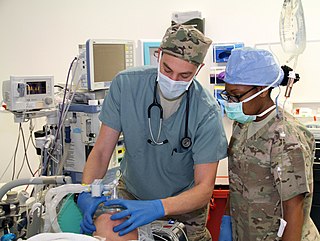
Anesthesiology, anaesthesiology, or anaesthesia is the medical specialty concerned with the total perioperative care of patients before, during and after surgery. It encompasses anesthesia, intensive care medicine, critical emergency medicine, and pain medicine. A physician specialized in anesthesiology is called an anesthesiologist, anaesthesiologist, or anaesthetist, depending on the country. In some countries the terms are synonymous, while in other countries they refer to different positions and anesthetist is only used for non-physicians, such as nurse anesthetists.
Membership of the Royal Colleges of Surgeons (MRCS) is a postgraduate diploma for surgeons in the UK and Ireland. Obtaining this qualification allows a doctor to become a member of one of the four surgical colleges in the UK and Ireland, namely the Royal College of Surgeons of Edinburgh, the Royal College of Surgeons of England, the Royal College of Physicians and Surgeons of Glasgow and the Royal College of Surgeons in Ireland. The examination, currently organised on an intercollegiate basis, is required to enter higher surgical training in one of the Royal colleges. Thus today's MRCS has replaced the former MRCS(Eng), MRCS(Ed), MRCS(Glas), and MRCS(I).
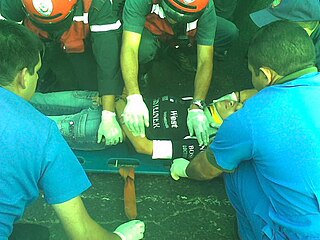
Advanced trauma life support (ATLS) is a training program for medical providers in the management of acute trauma cases, developed by the American College of Surgeons. Similar programs exist for immediate care providers such as paramedics. The program has been adopted worldwide in over 60 countries, sometimes under the name of Early Management of Severe Trauma, especially outside North America. Its goal is to teach a simplified and standardized approach to trauma patients. Originally designed for emergency situations where only one doctor and one nurse are present, ATLS is now widely accepted as the standard of care for initial assessment and treatment in trauma centers. The premise of the ATLS program is to treat the greatest threat to life first. It also advocates that the lack of a definitive diagnosis and a detailed history should not slow the application of indicated treatment for life-threatening injury, with the most time-critical interventions performed early.

The UCLA School of Dentistry is the dental school of the University of California, Los Angeles (UCLA) located in the Center for Health Sciences building in the Westwood neighborhood of Los Angeles, California, United States. The school has several educational and training programs, conducts oral and dental health research, and offers affordable dental care at three locations: Westwood, Venice, and Inglewood. The school also participates in several outreach endeavors, including numerous health fairs during the year, STEM pipeline programs and provides dental care for underserved populations in the region. The School of Dentistry is considered among the nation's best research-intensive dental schools.

Medical education in Australia includes the educational activities involved in the initial and ongoing training of Medical Practitioners. In Australia, medical education begins in Medical School; upon graduation it is followed by a period of pre-vocational training including Internship and Residency; thereafter, enrolment into a specialist-vocational training program as a Registrar eventually leads to fellowship qualification and recognition as a fully qualified Specialist Medical Practitioner. Medical education in Australia is facilitated by Medical Schools and the Medical Specialty Colleges, and is regulated by the Australian Medical Council (AMC) and Australian Health Practitioner Regulation Agency (AHPRA) of which includes the Medical Board of Australia where medical practitioners are registered nationally.
Medical education in the United Kingdom includes educational activities involved in the education and training of medical doctors in the United Kingdom, from entry-level training through to continuing education of qualified specialists. A typical outline of the medical education pathway is presented here. However training schemes vary in different pathways may be available.
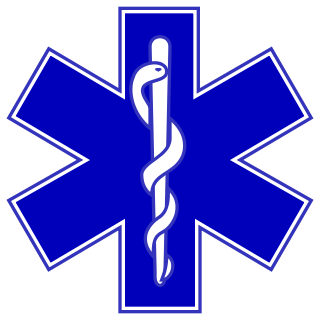
In the United States, the paramedic is a allied health professional whose primary focus is to provide advanced emergency medical care for patients who access Emergency Medical Services (EMS). This individual possesses the complex knowledge and skills necessary to provide patient care and transportation. Paramedics function as part of a comprehensive EMS response under physician medical direction. Paramedics often serve in a prehospital role, responding to Public safety answering point (9-1-1) calls in an ambulance. The paramedic serves as the initial entry point into the health care system. A standard requirement for state licensure involves successful completion of a nationally accredited Paramedic program at the certificate or associate degree level.
In the United Kingdom, operating department practitioners (ODPs) are allied healthcare professionals who are involved in the planning and delivery of perioperative care. As the name suggests, they are primarily employed in surgical operating departments, but they may also work directly within a variety of acute clinical settings, including pre-hospital emergency care, emergency departments, intensive care units (ICUs), endoscopy suites, interventional radiology, cardiac catheter suites, obstetric theatres and reproductive medicine.
An intensivist, also known as a critical care doctor, is a medical practitioner who specializes in the care of critically ill patients, most often in the intensive care unit (ICU). Intensivists can be internists or internal medicine sub-specialists, anaesthesiologists, emergency medicine physicians, paediatricians, or surgeons who have completed a fellowship in critical care medicine. The intensivist must be competent not only in a broad spectrum of conditions among critically ill patients but also with the technical procedures and equipment used in the intensive care setting such as airway management, rapid sequence induction of anaesthesia, maintenance and weaning of sedation, central venous and arterial catheterisation, renal replacement therapy and management of mechanical ventilators.

Beaumont Hospital is a large teaching hospital located in Beaumont, Dublin, Ireland. It is managed by RCSI Hospitals - one of the hospital groups established by the Health Service Executive. Its academic partner is the Royal College of Surgeons in Ireland.

The Royal Australasian College of Surgeons (RACS) is the leading advocate for surgical standards, professionalism and surgical education in Australia and New Zealand.
Trauma surgery is a surgical specialty that utilizes both operative and non-operative management to treat traumatic injuries, typically in an acute setting. Trauma surgeons generally complete residency training in general surgery and often fellowship training in trauma or surgical critical care. The trauma surgeon is responsible for initially resuscitating and stabilizing and later evaluating and managing the patient. The attending trauma surgeon also leads the trauma team, which typically includes nurses and support staff, as well as resident physicians in teaching hospitals.
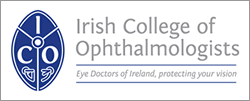
The Irish College of Ophthalmologists or ICO is the recognised body for ophthalmology training in Ireland. Founded in 1991, it represents over 200 ophthalmologists in Ireland. Its current president is Dr Patricia Quinlan. Yvonne Delaney serves as Dean.
The West Midlands Central Accident, Resuscitation & Emergency (CARE) team is a charitable organisation who respond to serious medical incidents within the West Midlands, UK. Working in teams alongside West Midlands Ambulance Service, volunteer doctors, nurses and other healthcare professionals deliver enhanced critical care to seriously injured and unwell patients.
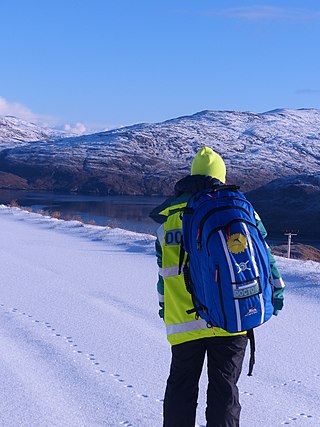
Pre-hospital emergency medicine, also referred to as pre-hospital care, immediate care, or emergency medical services medicine, is a medical subspecialty which focuses on caring for seriously ill or injured patients before they reach hospital, and during emergency transfer to hospital or between hospitals. It may be practised by physicians from various backgrounds such as anaesthesiology, emergency medicine, intensive care medicine and acute medicine, after they have completed initial training in their base specialty.

TraumaMan is a surgical simulation manikin used for teaching surgical skills, including the American College of Surgeons' Advanced Trauma Life Support (ATLS) program, to medical professionals. TraumaMan is also used to advance surgical skills in combat situations.
This is an index of nursing articles on Wikipedia.
The College of Anaesthesiologists of Ireland is the professional association and educational institution responsible for the medical specialty of anaesthesiology throughout Ireland. It sets standards in anaesthesiology, critical care, and pain medicine, and for the training of anaesthesiologists, critical care physicians and pain medicine physicians. It also holds examinations for anaesthesiologists in training, jointly publishes the British Journal of Anaesthesia and BJA Education, and informs and educates the public about anaesthesiology. Its headquarters are in Dublin, Ireland.
References
- 1 2 "CCrISP overview". surgeons.org. Archived from the original on 2014-01-16. Retrieved 2014-01-16.
- ↑ "Academy of Medicine of Malaysia - Care of the Critically Ill Surgical Patient (CCrISP®)". acadmed.org.my.
- 1 2 "Courses".
- ↑ "Education - Courses and Events - the Royal College of Surgeons of Edinburgh". Archived from the original on 2014-01-16. Retrieved 2014-01-16.
- ↑ "Neurosurgical Society of Australasia - Care of the Critically Ill Surgical Patient Course (CCrISP) Course". nsa.org.au. Archived from the original on 2014-01-16. Retrieved 2014-01-16.
- 1 2 "Care of the Critically ill Surgical Patient Course (CCrISP)". rcsi.ie.
- 1 2 "RCSI – Homepage" (PDF).
- ↑ "Types of CCrISP courses". surgeons.org.
- 1 2 3 4 Nair, Rajesh (2007). "Care of the critically ill surgical patient (CCrISP)". BMJ. 335 (7628): s185. doi:10.1136/bmj.39368.697882.7D. S2CID 80165724.